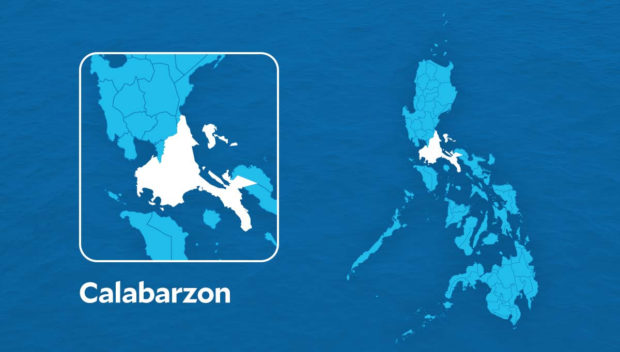DepEd: Calabarzon schools may go online due to extreme heat

Calabarzon. INQUIRER FILES
LUCENA CITY – The head of the Department of Education (DepEd) in Calabarzon region has told school administrators that they could shift to modular distance learning and reminded them of the adoption of other safety measures to protect teachers and students in case of extreme heat.
On Monday, lawyer Alberto Escobarte, director of DepEd-Region 4A, issued Regional Memorandum No. 233-2024 to affect the order “to avoid putting the learners’ and teachers’ health at risk.” Calabarzon, or Region 4A, stands for the provinces of Cavite, Laguna, Batangas, Rizal and Quezon.
A copy of the memorandum was posted on the Facebook page of DepEd-R4A Calabarzon on Tuesday, April 2.
READ: Teachers’ groups asks DepEd to measures against extreme heat
“School heads are reminded of their authority and responsibility to suspend in-person classes (F2F) and automatically implement modular distance learning in cases of unfavorable weather and environment, particularly where there is an extremely high temperature reaching the heat index of 40 degrees Celsius and above as provided by the Geophysical and Astronomical Services Administration (PAG-ASA) or as issued by the concerned Local Government Unit,” Escobarte said in his order.
Article continues after this advertisementEscobarte noted that the Regional Management Committee has unanimously agreed “that 40 degrees Celsius is the minimum threshold” for the suspension of face-to-face classes and the eventual adoption of MDL (modular distance learning).
Article continues after this advertisement“In extreme circumstances, however, if the temperature becomes unbearable and poses a health risk even without reaching the threshold, the school head may suspend the face-to-face classes and advise the adoption of MDL subject to the condition that a report be submitted to the Office of the Superintendent,” he added.
He advised school officials to adopt preventive measures to mitigate extremely high temperatures in the classrooms.
“Ensure that classrooms are adequately ventilated; provide access to potable drinking water throughout school premises and encourage learners and teachers to bring water provision in tumblers or other appropriate containers,” the memorandum stated.
He also ordered the creation of shaded areas in outdoor spaces on the school premises where learners and teachers could seek refuge from the sun during breaks.
Escobarte told school officials to “consider adjusting schedules, if applicable, such as starting classes early and having shorter outdoor activities; allow lighter clothing during hot weather, ensuring learners and teachers are comfortable inside the school.”
He said school officials should regularly monitor weather forecasts and heat advisories from concerned government agencies and take appropriate measures based on the severity of the conditions.
Escobarte said they should coordinate with local government units for emergency plans and ensure access to support and resources and other relevant measures applicable in their locality.
Based on the state weather bureau’s latest forecast, several areas across the country are expected to experience “danger category” heat indexes exceeding 42 degrees Celsius.